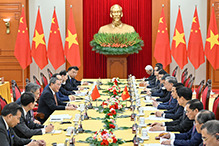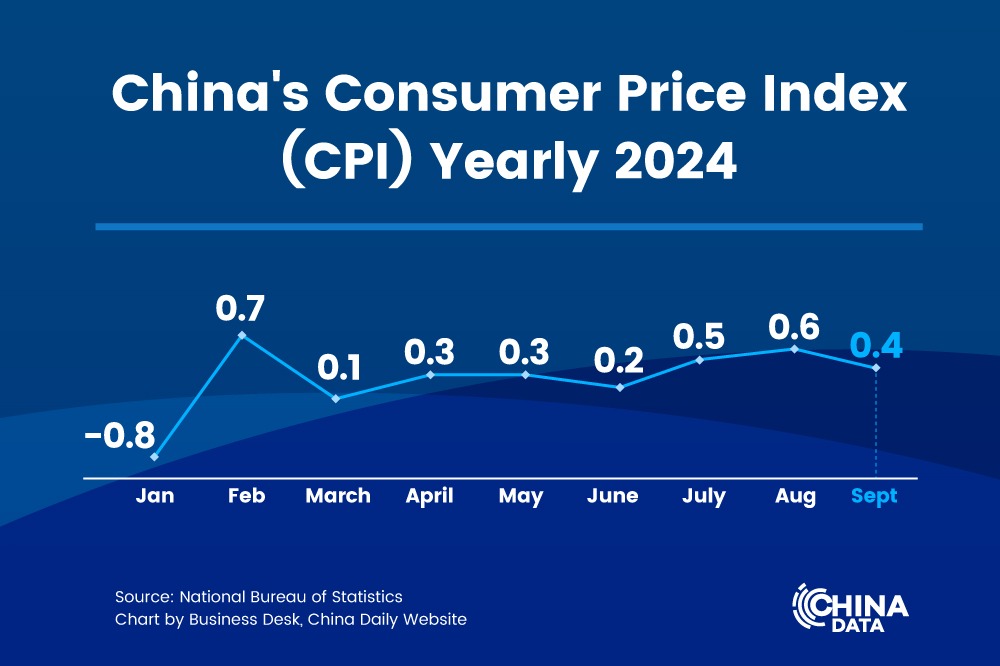How China is renewing its economic appeal


After consecutive years of increasing foreign investment in China's equity and bond markets, the domestic market experienced a net outflow of capital from overseas investors in 2022, on the back of the country's property market challenges and the ramifications of its ongoing dedication to preventing the spread of COVID-19.
While this has been a challenging period for China, I believe that the country's prospects will end up stronger over the medium term as a result of having been so thoroughly tested by the pandemic — which caused many businesses to rethink their models and supply chains — as well as subsequent market disruptions, like those we have seen in the property sector. International investors will also play a role in the next stage of the country's economic development.
Over the years, China has made a lot of changes at a rapid pace, while also developing its economy. For the remainder of this decade, there is huge potential to speed the pace of reform and expand the economy through increased digitalization across a wide range of industries, including healthcare, manufacturing, finance and technology.
Healthy growth possible
Last year proved a challenging one for China. Its 2022 economic growth is likely to be 3 percent or less, a marked drop from the 8.1 percent recorded in 2021.
However, the country is emerging from the shadow of the pandemic and is tackling its property market challenges head on, which should lead to an improved GDP growth of 4.9 percent in 2023 — not the big bounce markets want, but healthy growth all the same.
For over a year, China's government restricted borrowing levels of leading property developers, which limited new home building and led to a 30 percent drop in sales. However, on Nov 11, Beijing revealed a multi-step plan to support the industry, including measures to alleviate the worst of the impact that resulted from stricter borrowing limitations. This should stabilize the real estate sector in 2023 and reduce its drag effect on the economy.
Even more encouraging, the government began on Nov 10 to ease its zero-COVID-19 policies, and it has incrementally done so in the weeks since. As we start 2023, the zero-COVID-19 policy has ended and the re-opening of China to the world has begun in earnest. This will revive domestic household spending, kickstart the local economy and in time bring benefits to the global economy.
The Chinese government continues to focus its efforts on common prosperity. During the 20th National Congress of the Communist Party of China in October, the government underscored its core development strategy, which involves raising the living standards and wealth of as many people as possible. It intends to do this by improving public services, the social safety net, tax policies and employment standards.
Big boost for many sectors
Taken together, both the loosening of COVID-19 restrictions and a greater focus on common prosperity will offer opportunities for a variety of business sectors — healthcare, manufacturing, technology and finance, just to name a few. Common prosperity should help spread wealth among the Chinese population. As a result, it's likely to lead to greater demand for internet services, higher spending on foods and beverages as well as travel and tourism, and increased asset flows into insurance and asset management. It could even result in a pickup of sports activities.
The end result should be improvement in companies' bottom lines and better returns for investors who hold their shares. Share prices of many consumer and tech companies already improved at the end of 2022, and there could be further upside this year.
In addition, China will boost its supply chain security and innovation while improving its manufacturing sector through more automation and digitalization.
The country is also focusing on green technologies as it seeks to greatly reduce carbon emissions and find cleaner solutions to energy and transport needs. It already boasts the world's largest electric vehicle industry and is quickly expanding into large renewable energy solutions, such as wind turbines and solar panels. Many manufacturers are based in China's smaller cities, and they should provide new engines for economic growth as they continue to expand.
Plus, there are exciting opportunities in new energy areas, such as green hydrogen, or the manufacturing of hydrogen as a fuel via renewable energy. China is one of the few nations that has both the size and economies of scale to develop green hydrogen effectively.
Financing opportunities
These ongoing developments underline the investment and financing opportunities likely to emerge as the nation's economic outlook brightens. Indeed, our equity strategy team at UBS believes the optimization of contagion controls will increase consumption and renew earnings growth, which, in turn, will support future share valuations across many sectors.
China's fundamental financial strength should not be underestimated. After all, even during a trying 2022, it had been the most active country in the world for IPOs. The Shanghai Stock Exchange saw 154 A-share IPOs that raised a combined $51.64 billion in 2022, while the Shenzhen Stock Exchange had 187 new listings worth $30.43 billion. They were the first and second most prolific exchanges globally for IPOs last year.
China is coming out of a challenging period, but its authorities have a plan to increase the wealth of its citizens, accelerate technological development and take action against climate change. The country also boasts the world's second-largest capital market, has many quality companies seeking capital and has no shortage of local investors willing to supply it. So, all is set for economic momentum to accelerate in 2023.
At UBS, we have long held the position that, when it comes to China, the long game is the best game. We're there and will continue to be there for our clients in China as well as for those who want to invest in China. And international investors shouldn't miss out on the many opportunities it offers.
The writer is CEO of UBS Group. The views don't necessarily reflect those of China Daily.




































